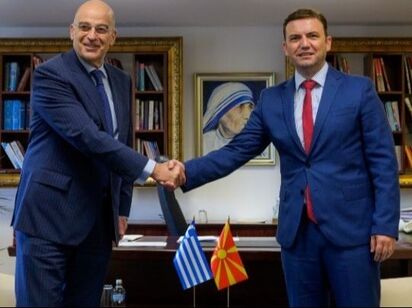 Meeting between Foreign Ministers Nikos Dendias (L) and Bujar Osmani (R) in Skopje
Meeting between Foreign Ministers Nikos Dendias (L) and Bujar Osmani (R) in Skopje "We will not succumb to the temptation to reply to these provocations in the way way. We have a position that is very central: that international law and the Law of the Sea demand respect from every side. This is the fundamental rule of the Alliance to which we belong, of NATO," he added.
He repeated that Greece desires and is working feverishly to establish peace, security and stability in the region and believes that the only path to achieving these goals in the clear and full support of the European prospects of the Western Balkans.
"We are absolutely convinced that the EU should immediately begin accession negotiations with Albania and North Macedonia [sic]. This is the message that we are constantly relaying to our European partners," he said.
With respect to North Macedonia [sic], in particular, he noted that Greece's support was contingent on the full implementation of the Prespa Agreement in good faith and on maintaining good neighbour relations.
Dendias said that the Prespa Agreement was discussed in his meeting with Osmani, who assured him that North Macedonia [sic] was "moving in the direction". They also examined ways to strengthen bilateral relations, especially in terms of interconnecting the electricity grids in the two countries.
Osmani said the two sides expressed a readiness to further promote a strategic partnership relationship via specific forms of cooperation and commitments, creating a stronger connection between the two countries which would act as a model for the entire region on how to successfully resolve differences between neighbouring countries.
Source: ANA-MPA

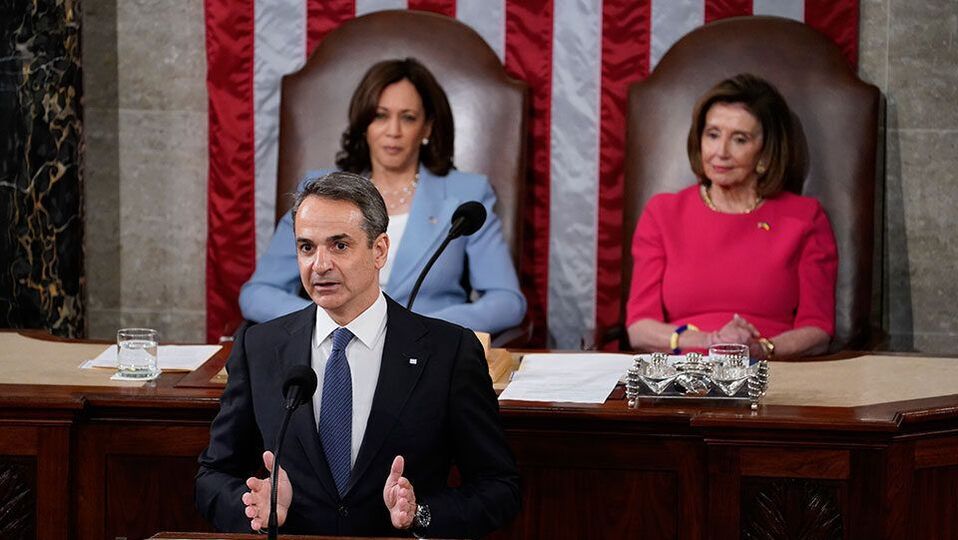
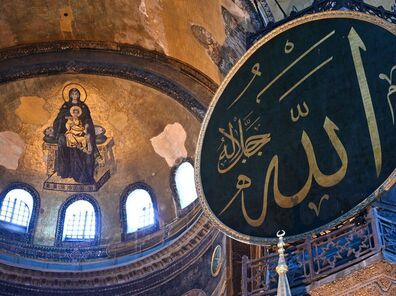
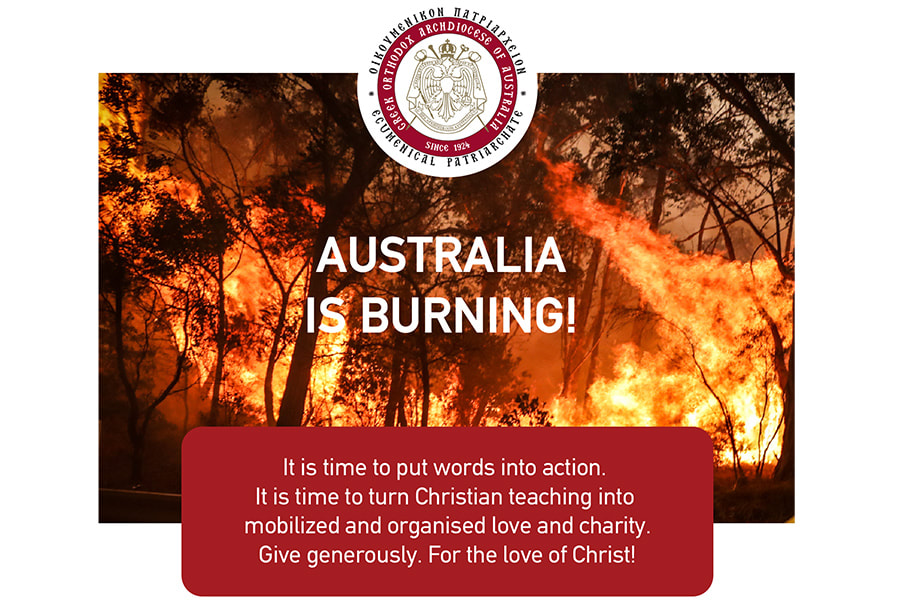
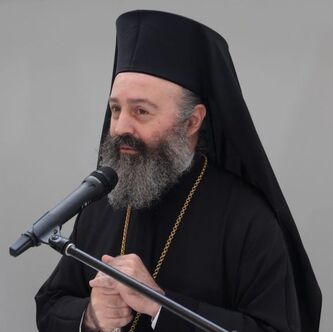
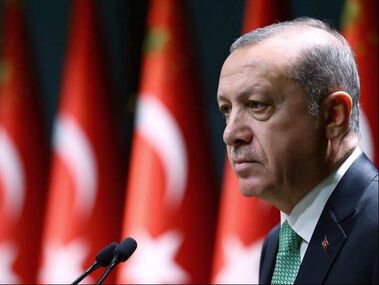
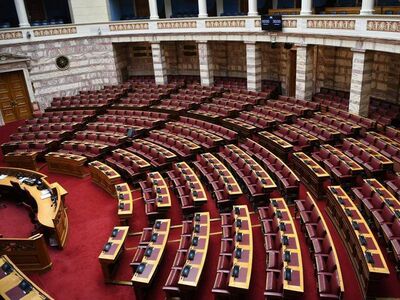
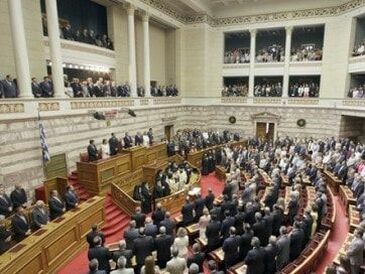
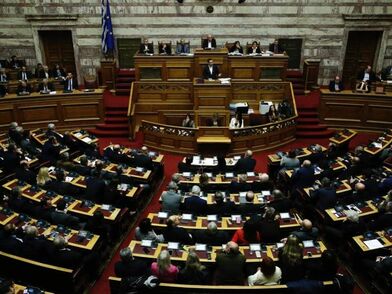
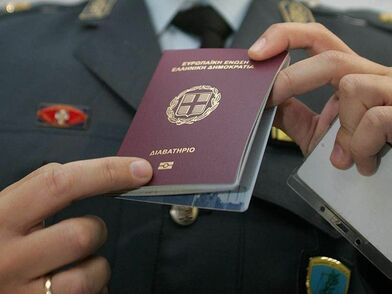
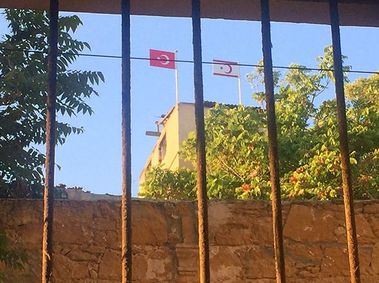
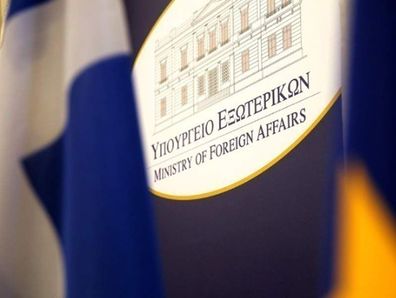

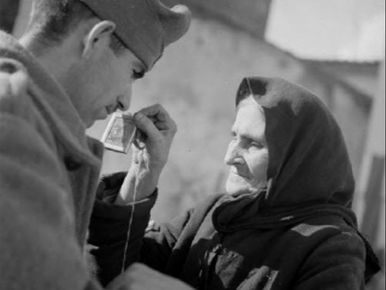
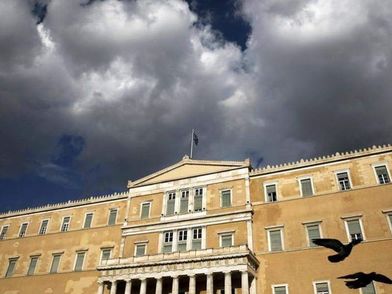
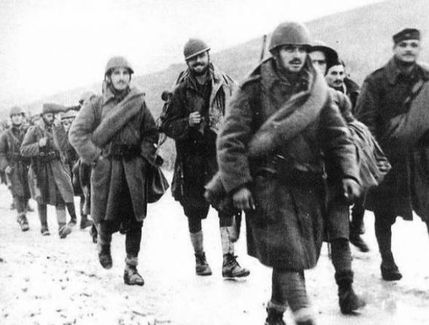
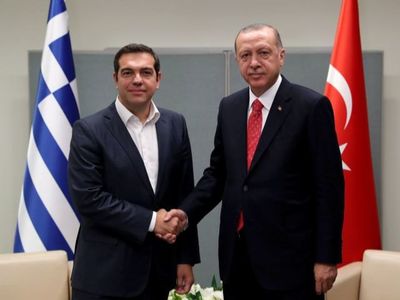
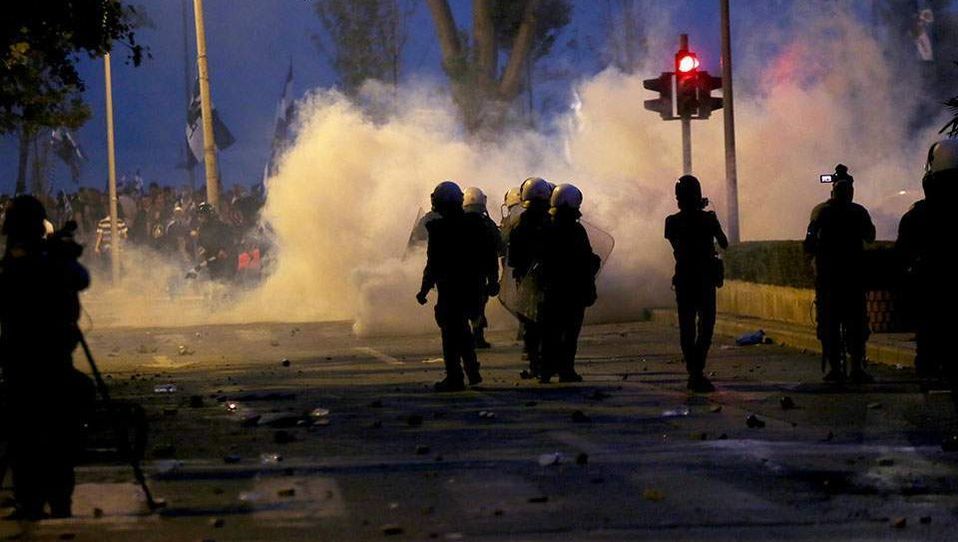
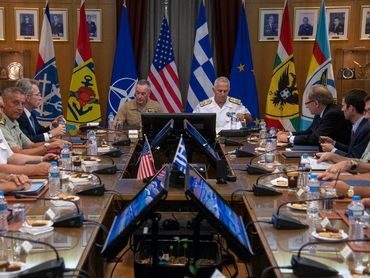
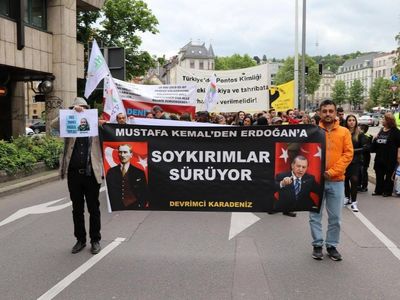
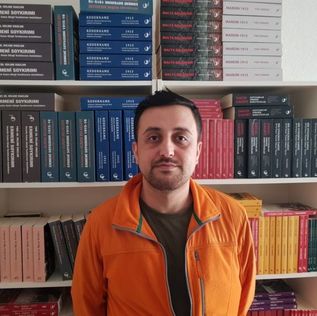
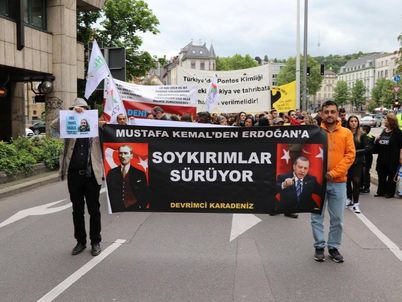
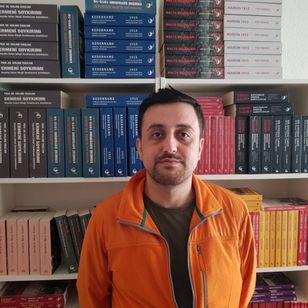

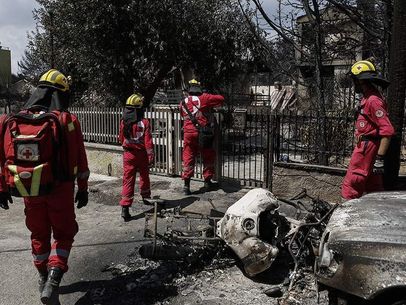
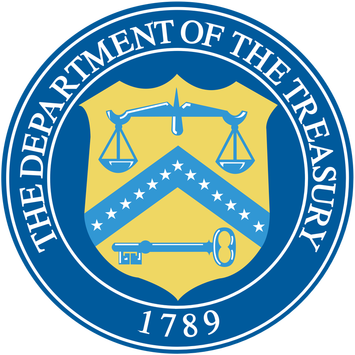
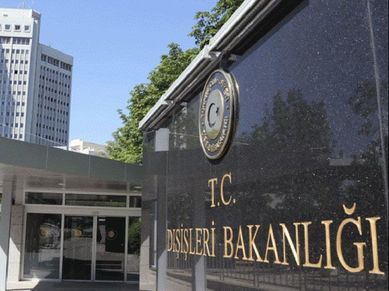
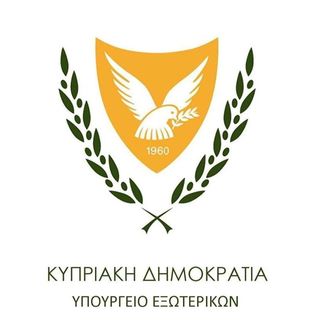



 RSS Feed
RSS Feed